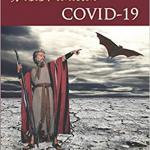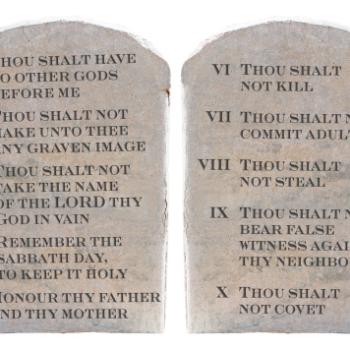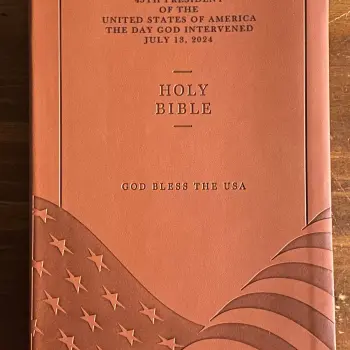I had a good mother. Barbara Mae Zarley died in the night on March 11, 2021, in her nursing home in the Kirkland, Washington, area, a suburb of Seattle. She lacked four days of making it to what would have been her 101st birthday, on March 15th. She had avoided contracting this terrible coronavirus, COVID-19, that came upon the world right about that time a year ago. And it first hit the U.S. in nursing homes in the very area where she lived. She contracted pneumonia only a few days before she died, yet she did not have the virus. They administered antibiotics. She was having difficulty breathing, so they had to put her on a ventilator. Yet soon she was gone. It happened so fast.
I have two younger sisters and no brothers. My sister Pam, who lives in Kirkland, has been wonderful in taking care of our mother in her old age. Our mom lived in her own house in West Seattle for decades. The houses in that area were built right after WWII or a little earlier. Her house was located at the edge of a hill that sloped down about two blocks to Puget Sound below. It was only one small block from the house our parents bought right after WWII. My sisters and I grew up in that house until our family moved from there when I was about 12 years old. Mother was in her late 80s and still living alone in her house. We finally talked her into moving into a nursing home when she was about 88.
When my mother was about to have her 100th birthday, all of my family—my three children and six grandchildren—were planning to be with her to celebrate. We made plans to travel from our three home locations of Arizona, Colorado, and California to Seattle/Kirkland to honor mother for her 100th birthday on March 15, 2020. Then this devastating coronavirus, called COVID-19, struck a nursing home in Kirkland, only a few miles from the one where my mother lived. It happened only a matter of days before March 15th. Our nations’ health authorities were saying that this virus could be bad and that people should take precautions for it. So, at almost the last minute we all had to cancel our plans of having a 100th-year birthday party for my mother.
This COVID-19 got even worse than most thought. The nation went into lockdown, trying to curtail the spread of this virus as much as possible. Many Americans didn’t take it seriously. It did kill mostly the elderly and people with health complications. So, for all that time, for a whole year, I couldn’t go to Seattle and see my mother. This made it more difficult that she died and I didn’t get to see her for about the last two years of her life because of COVID-19.
I think our mother did a pretty good job of raising us kids—me and my two sisters Pamela (Pam) and Linda. Each us are about two years apart in age, with me being the eldest. Pam has lived in Kirkland for about the past forty years or more. Linda has lived in Southern California for longer than that. All three of us are divorced and single. Mother was that way the last half of her life.
Both of my parents grew up in Eastern Washington after their families lost their mortgaged farms in the Midwest (Kansas and Iowa) during the Depression and moved to the West Coast. In my book, Solving the Samaritan Riddle (SSR, 2015), the first chapter was written by my mother. It’s all about her and my dad meeting, courting, and marrying, and it is full of humor. Both of my parents had a sense of humor. My mother had tried to become an author. Maybe that’s where I got the idea of becoming an author, which didn’t happen until I was in my mid-thirties.
My dad had been a drill sergeant and then a cook in the Army during WWII. I was born 9/29/41 in Seattle. When my dad entered the Army, my mother moved back to her prior home to be near her parents in Selah, Washington, near Yakima. When the war ended and my dad was discharged, my parents returned to Seattle to eventually purchase the small home I grew up in. It was located at the southwestern corner of Hudson Street and 49th Avenue.
My dad was a hard worker. After he got out of the Army, he often worked two jobs. He was a short-order cook in downtown Seattle, and he worked on the waterfront carrying cargo from ship to land. Sometimes, he had to walk on the logs floating in Elliott Bay. That was dangerous work. He eventually teamed up with a friend as a partner to open his first restaurant, located at Fourth Avenue and Seneca Street in downtown Seattle. It was named “Kermit and Walt.” Walt was a good friend; but he didn’t work as hard as my dad did, so the partnership didn’t survive.
When I was about six years old, my mother was in the house and heard me through an open window say some cuss word as I was playing outside with friends in our yard. She ran outside and grabbed me by the ear, led me into the bathroom of our house, stuck a bar of soap in my mouth, and washed out my mouth. That made quite an impression on me. Guess what? I don’t think I’ve ever cussed as an adult except one time. I won’t get into that.
In 1949, my dad was looking for a job. My mother read in the West Seattle Herald newspaper that Seattle’s city-owned, public West Seattle Golf Course needed someone to operate its food concessions. They consisted of a café, banquet facility that could serve local civic clubs, such as Kiwanis and Rotary clubs, and serving food outdoors at the nearby football stadium. My dad got that lease and ran that operation for seven years. That’s how he and I started playing golf.
So, I started playing golf when I was ten years old. My dad got pretty good at it fast. Within two years, he was down to a 2 handicap at the West Seattle Golf Course Men’s Club. And he liked to gamble. As soon as he would finish the lunch business in the café, and perhaps the civic club business, he was teeing off with his buddies by about 1:00 PM or later. They had their wagers.
So, I was a youngster who didn’t yet fit into that crowd. But my mother had also taken up the game. And in my first years at golf, she was the one who would play golf with me. I remember us celebrating when she broke 100 for the first time, shooting a 96 at the West Seattle Golf Course. I don’t know if she ever broke 100 again. We used to humor her about her golf swing. She had a huge loop in her backswing that resulted in her club shaft pointing way off the right of her target at the top of her backswing. In those days, of course, I didn’t know enough about the golf swing to help her. I think my dad thought it was a helpless cause. Sometimes, golfers have their own ways of doing things, and they don’t want anyone to bother them about it when it comes to their golf swing. I think my mother eventually gave up trying to correct her loopy swing, concluding that she just had to live with it.
I went far away from home to college, about 2,500 miles away, to the University of Houston in Houston, Texas. I soon got involved with some student, Christian athletes who were meeting together in the dormitory for prayer and Bible study. Three of these guys attended a particular church that emphasized Bible study. So, I started joining them in that, too. But I didn’t have a Bible. One day I told my mother on the phone about it, and she sent me her Bible. It was a special Bible for study in the King James Version that was called The Scofield Study Bible. That just happened to be the Bible that most of the people used at this church I was attending. It was an independent church called Berachah Church. So, it was just the right Bible for me.
I later asked my mother how she got that Bible. She said that when pop was away in the Army, some ladies in Selah invited her to a home Bible study. She attended and noticed they were using a Scofield Bible. So, she bought one for herself and used it for that brief time she met with them. That became the first Bible I used in the beginning of my theological education, which took place largely at this church. Eventually, a New Scofield Study Bible was produced, also in the King James Version. I bought that and it became my main Bible that I studied. Thus, the first ten years of my theological education I used the “Old Scofield Bible,” as it came to be called later, and the next ten years of my theological journey I used the New Scofield Bible. And it all started with my mother giving me just the right Bible for me at that time.
When I was growing up, I never recall my parents calling themselves “Christian.” However, both of them had come from church-going families. My mother’s family attended the Christian Church in Selah. I don’t know how much my grandfather Thompson attended. Years later, when I was a college student, I would talk to him about God. But by this time, he was an atheist. He also had a penchant for writing. Sometimes, he would write a letter to the editor of the local newspaper, and it would get printed. I remember one time writing a long letter to him while I was in college in which I was trying to convince him about the existence of God.
My dad’s parents were very serious about being Christian. They faithfully attended the Free Methodist Church where they lived in a suburb of Portland, Oregon. That was less than 200 miles from where I lived, in Seattle. Of course, my family sometimes drove in our car down to Portland to visit them. Free Methodists were rather fundamentalist and strict in practicing their religion compared to congregants of the Christian Church. My dad actually was a Sunday school leader in his early teens. But by the time he reached, say, sixteen, he was playing cards and smoking, thus departing from church.
Nevertheless, both of my parents always had respect for Christian people. One of my uncles on my dad’s side of the family became a Christian minister and pastored the Nazarene Church located a few blocks from my house. So, when I was about six years old, on Sunday mornings my mother would send me off to Sunday school at the Nazarene Church. As my sisters got older, they eventually joined me in attending Sunday school. My dad and mother didn’t attend the church except on an occasional holiday, such as Easter. I have always been grateful that I had some relatives who were Christians and that God gave me a mother who did that.
When I was seven years old, in 1949, the by then famous evangelist Billy Graham came to Seattle and held a week-long crusade. My mother attended one evening and took me with her. My book relates (SSR, pp. 15-16), “As Mr. Graham preached, my mother cried. I rarely saw her do that. It caused me to think to myself right then, ‘When I grow up, I want to learn what that man says that makes my mother cry.’”
Billy Graham liked to play golf. When I was a pro golfer on the PGA Tour, I became friends with Billy. He spoke to our PGA Tour Bible Study group four different times. And I was elated when he endorsed my first book, The Gospels Interwoven (1987).
My mother attended school at the University of Washington during her late 40s. She had worked as a hostess for several years in my dad’s restaurant, named Kermit’s, in West Seattle. (I had grown up working for him there as a teenager, first as a dishwasher and then as a cook.) My mother had aspirations to become a school teacher and an author. She graduated from UW in her early 50s. But she never got into teaching. Instead, she became a real estate agent in West Seattle until her retirement.
My parents divorced after twenty-five years of marriage. It was a difficult time for my mother. It caused to her think seriously about her relationship with God. So, she started attending the West Seattle Christian Church. She attended regularly for decades until she moved to the nursing home near Kirkland. People in the church loved her. She loved to sing in church. For years she was in the choir. When I visited my mother, I would attend Sunday worship service there at church with her. I miss my mother. I always liked to kid around with her. She was a good soul.
I believe the Bible teaches that Barbara Mae (Thompson) Zarley is now asleep in Jesus (e.g., Daniel 12.2-3; 1 Thessalonians 4.13-18), awaiting the blessed resurrection. I will rejoice to see her on that glorious day. That is when our Lord Jesus will return from heaven with a great shout, the blast of a trumpet, the graves will be opened, and he will take to himself all those people who belong to him.













